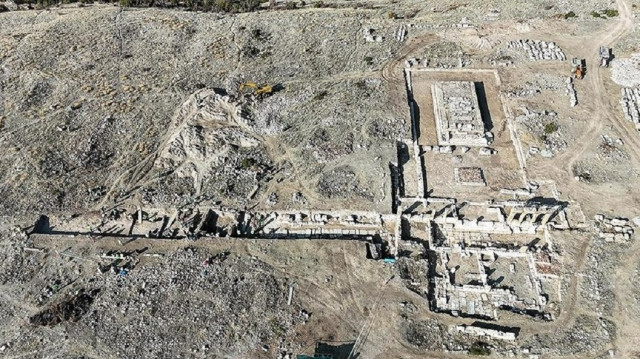In the ancient city of Blaundos, located in Turkey’s Usak province, a significant discovery has been made—a marble plaque dedicated to the Roman Emperor Hadrian. Excavations at the site, which have been ongoing since 2018, continue to reveal the city’s historical importance. Blaundos, founded by soldiers from Macedonia during Alexander the Great’s campaigns in Anatolia, is encircled by the deep Ulubey Canyon, creating a natural fortress with a single entrance.
This year’s excavations, which began in June, have been focusing on a 2,000-year-old temple of Demeter, goddess of agriculture and fertility, and a monumental tomb area at the city’s entrance. The team of 60 archaeologists working on a columned street has made an exciting find—an inscription dedicated to Hadrian, who ruled from 117 to 138 AD.
The inscription, measuring 80 cm by 35 cm (approximately 31.5 inches by 13.8 inches), reads: “To the Savior and Founding Emperor Hadrianus Olympios.” This marble plaque is believed to have been erected to honor Hadrian, who was known for his support of cities and expected praise in return. The find provides a valuable glimpse into the relationship between Roman emperors and the cities they ruled, as well as the culture of honoring and celebrating emperors through inscriptions.
Blaundos, with its rich history spanning the Roman and Byzantine periods, continues to be a site of archaeological significance, revealing important aspects of ancient urban life, religious practices, and imperial influence.


Leave feedback about this